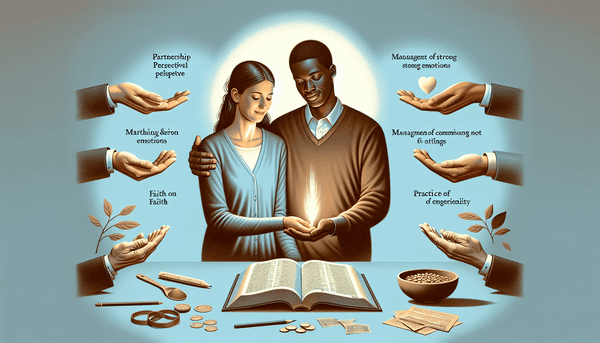The Phenomenon of False Prophets and Miracles
The Bible cautions believers about the advent of false prophets who will perform great signs and wonders to deceive, if possible, even the elect. As stated in Matthew 24:24, these individuals will rise, claiming divine inspiration, yet leading many astray. To guard against such deception, the Bible encourages a discerning spirit, one that is attuned to the true essence of God's Word. The Deuteronomist offers guidance, asserting that even if a prophet's prediction comes to pass, but they lead you away from God, they are false (Deuteronomy 13:1-3). The believer is thus urged to remain steadfast in faith and committed to scripture, as the Apostle Paul reminds us in Ephesians 6:11-12 to put on the full armor of God to stand against the devil's schemes.
The Authenticity of the Gospels
The Gospels stand as the cornerstone of Christian belief, documenting the life and teachings of Jesus Christ. Their authenticity is rooted in the eyewitness accounts of His apostles, as the Apostle John notes that many other signs Jesus performed were not recorded in his book, but those that were, serve to bolster our faith (John 20:30-31). The scriptures are deemed God-breathed and useful for teaching, rebuking, correcting, and training in righteousness, as stated by Paul in 2 Timothy 3:16. Furthermore, historical and archaeological findings have reinforced the reliability of the Gospels, affirming their place in history and in the hearts of believers.
The Human-Animal Bond and Grieving for Pets
While the Bible does not explicitly address the passing of pets, it does recognize the special bond that exists between humans and the animal kingdom. The scriptures are replete with references to the care and compassion we are to show towards God's creatures, as reflected in Proverbs 12:10, 'A righteous man cares for the needs of his animal.' Grieving the loss of a pet is thus a natural extension of this bond, and the Bible offers comfort through its verses, encouraging us to embrace our memories and the joy shared, as a testament to the life and love that was experienced.
Conclusion
As we conclude our exploration of these biblical themes, we are reminded of the enduring quest for truth and understanding that is woven into the fabric of our spiritual lives. The Bible, rich in wisdom and insight, continues to offer guidance and comfort to those who seek it. Whether grappling with the challenges of discerning truth in a complex world or finding solace in the aftermath of loss, the scriptures provide a source of strength and hope. We are encouraged to persevere in our pursuit of knowledge and to find in the Bible a wellspring of solace for life's journey.
FAQ
Q: What does the Bible say about the miracles of false prophets?
A: The Bible warns of false prophets performing great signs and wonders to deceive. Matthew 24:24 speaks of false Christs and prophets who will perform these miracles to lead even the elect astray.
Q: How do we know that the Gospels are not forgeries?
A: The Gospels are considered authentic based on apostolic testimony and divine inspiration. John 20:30-31 and 2 Timothy 3:16 affirm the Gospels as true accounts and God-inspired scripture.
Q: Are there any witnesses in the Bible to the truth of the Gospels?
A: Yes, the apostles themselves bear witness to the truth of the Gospels. For instance, Apostle John claims many other signs were performed by Jesus that are not recorded in his book, but those included are to help us believe (John 20:30-31).
Q: What does the Bible state about God's eternal nature?
A: The Bible asserts that God is eternal, having no beginning or end. Psalm 90:2 speaks of God's existence from everlasting to everlasting, affirming His timeless nature.






